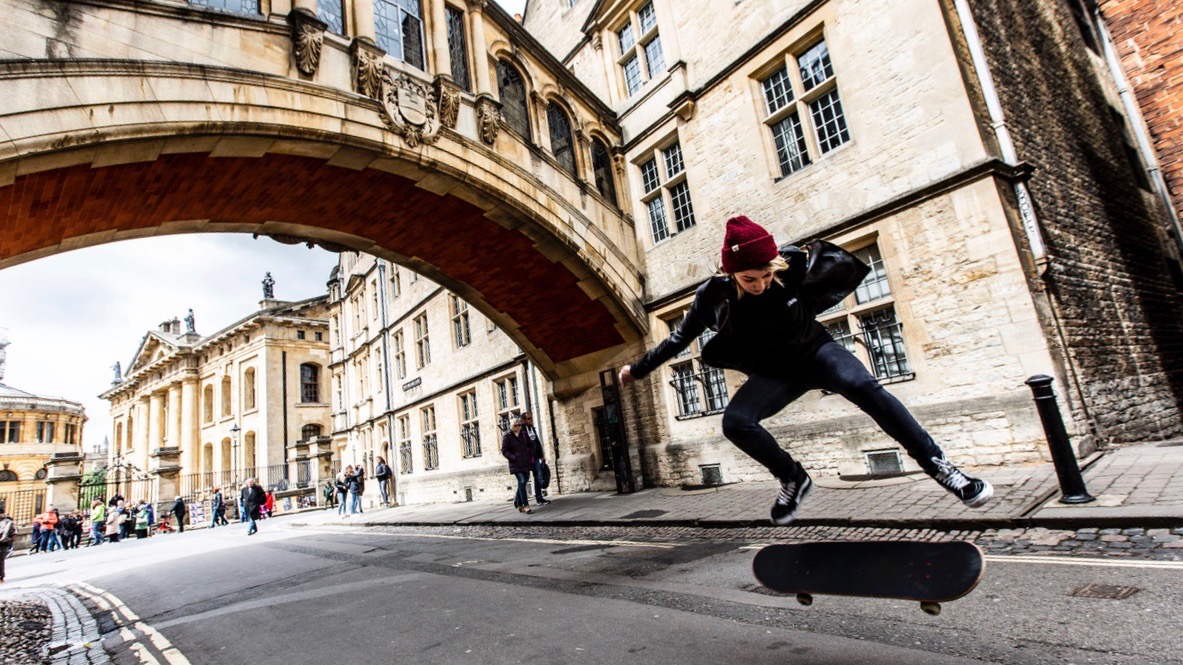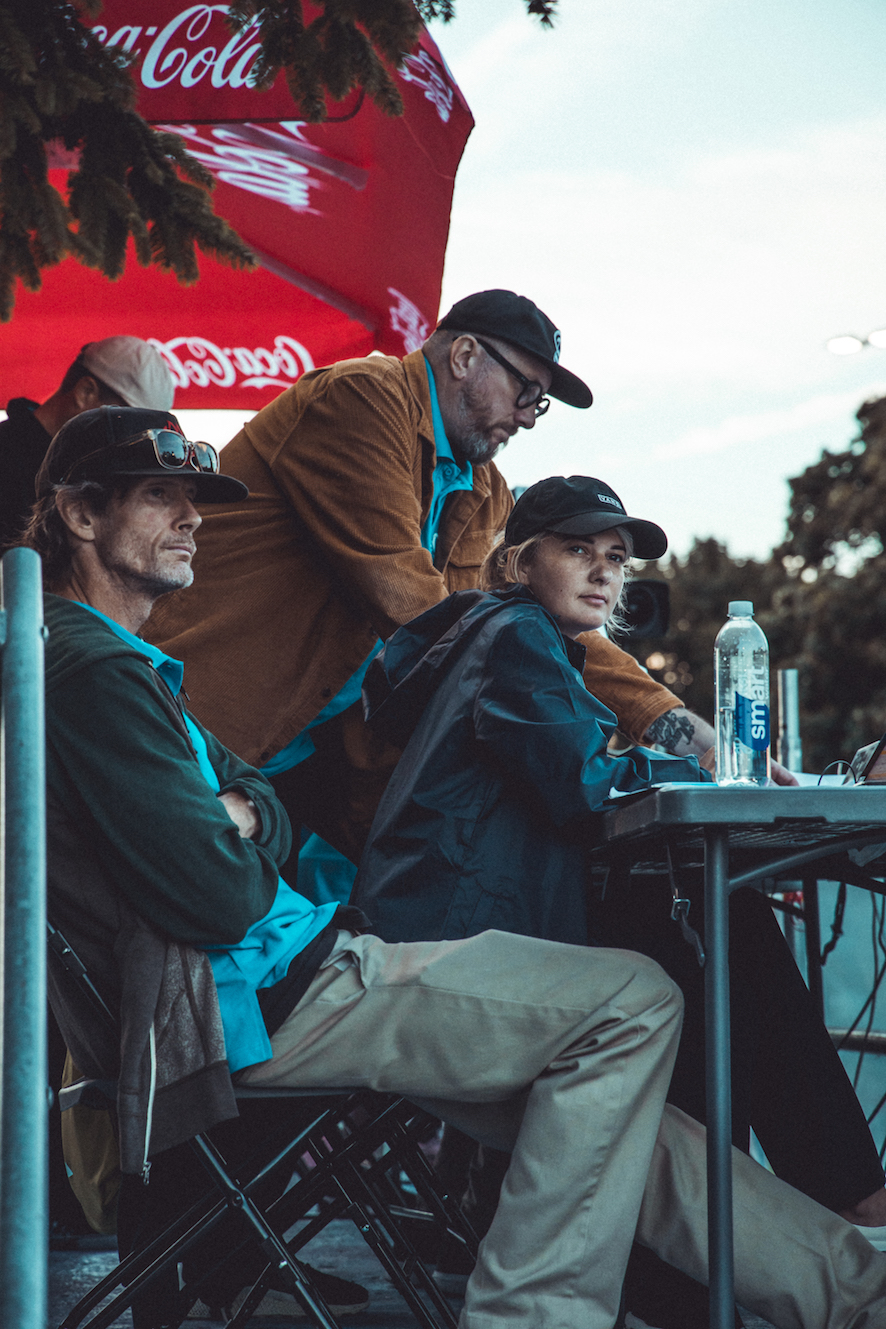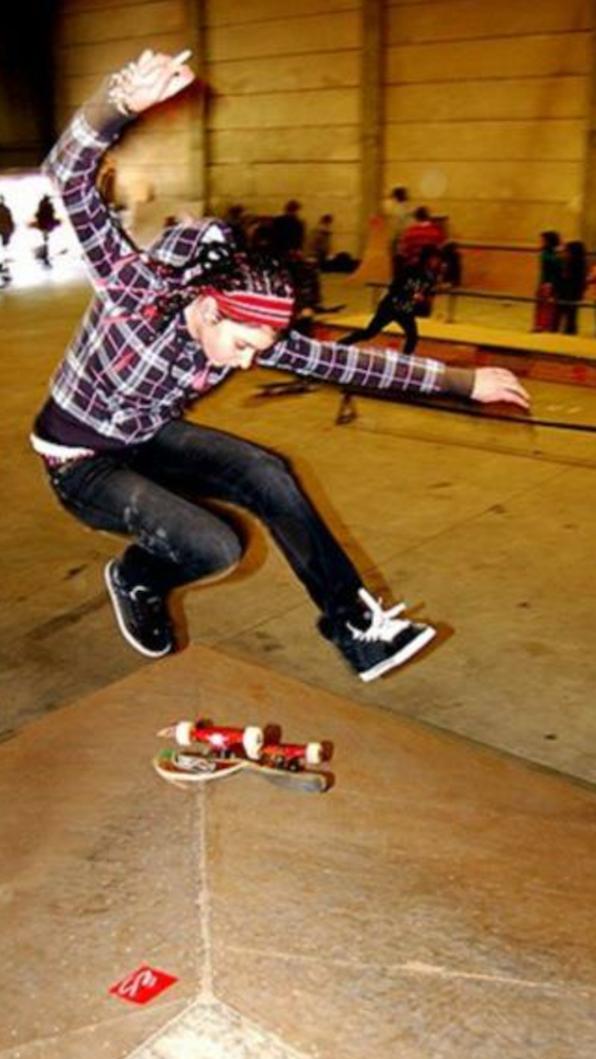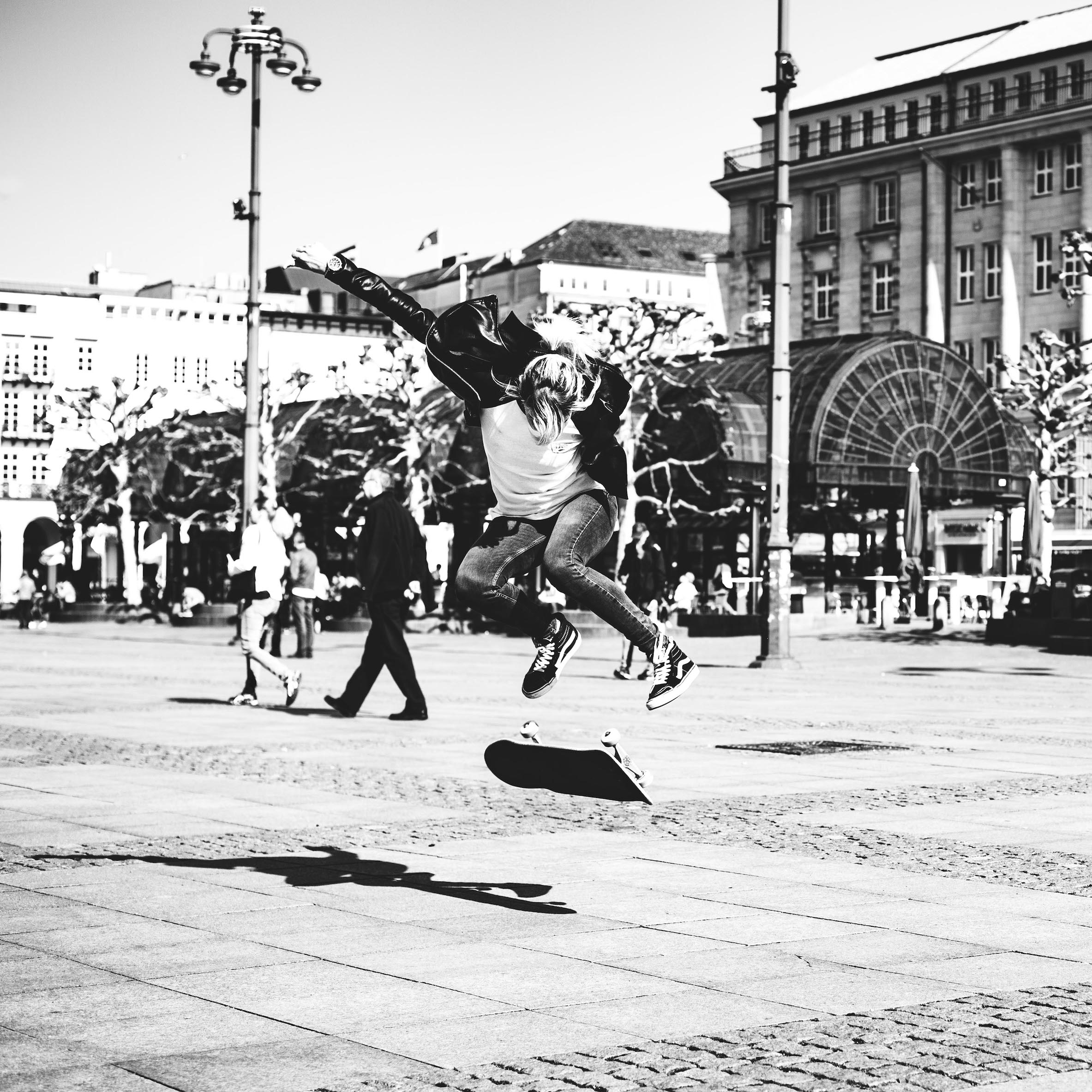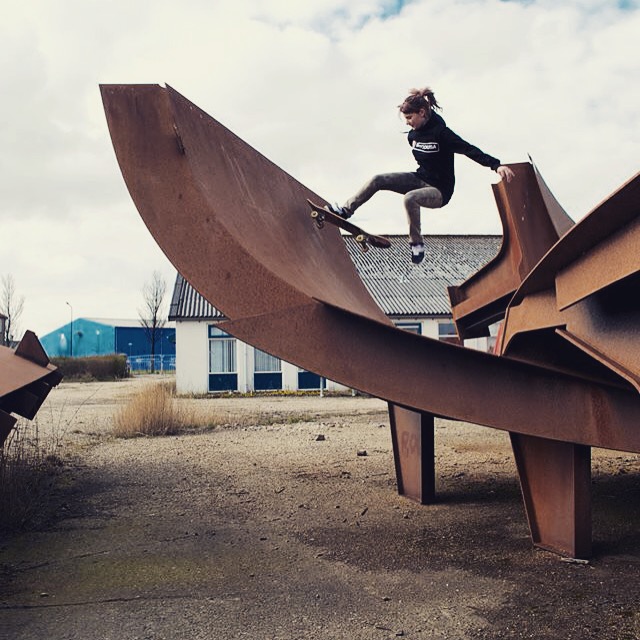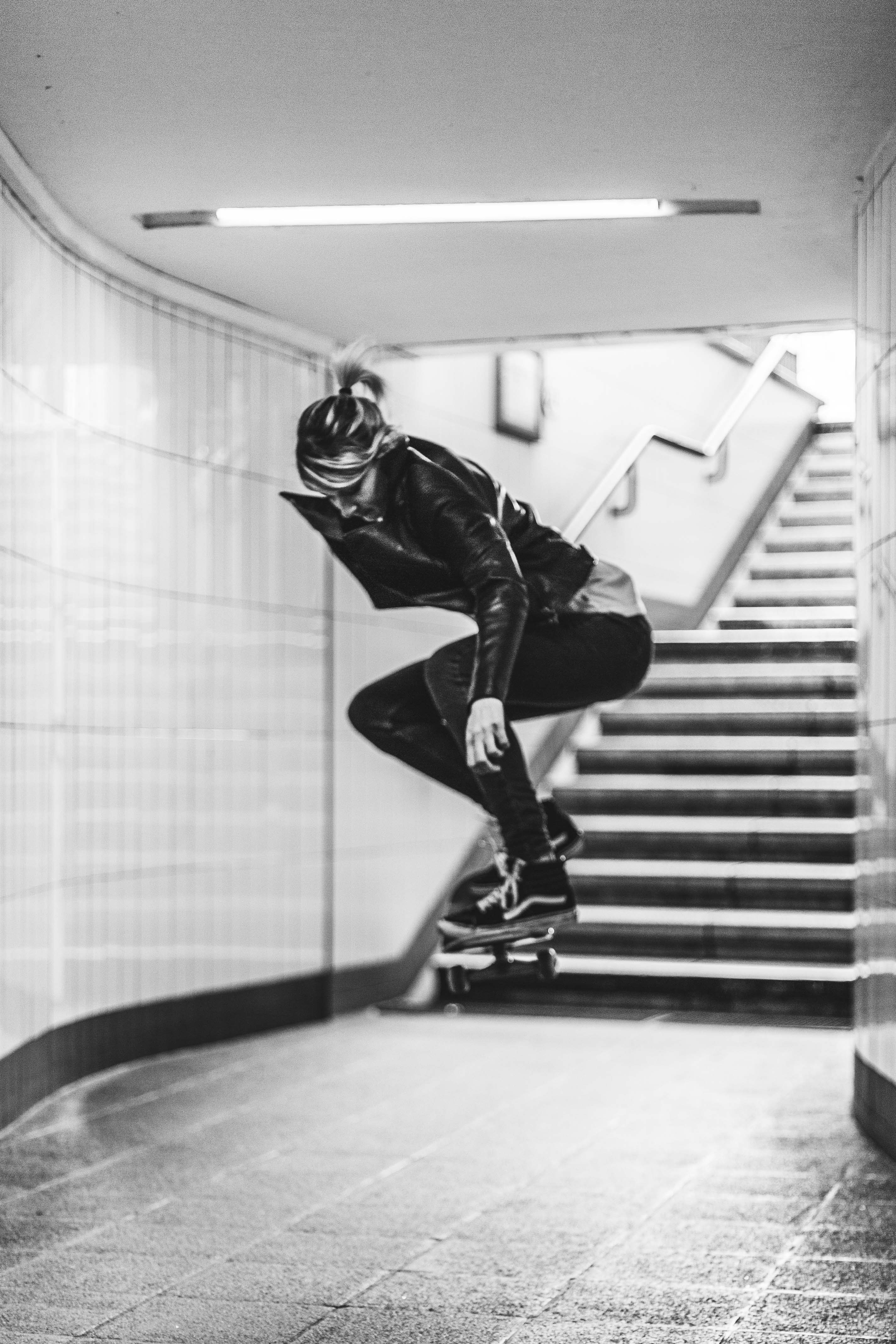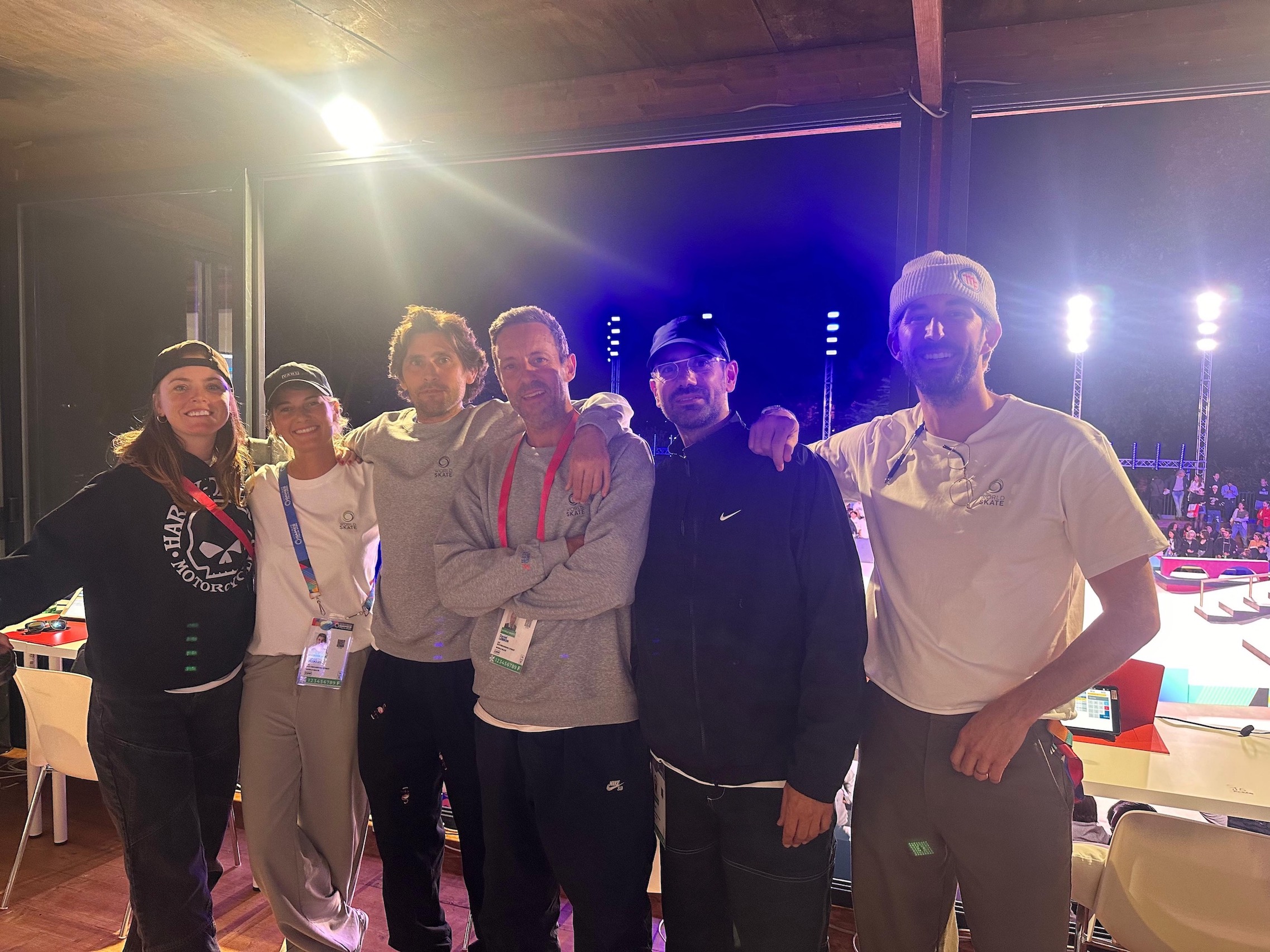Women's skateboarding in Europe may well be in rude good health right now, with some skateboarders who have a long perspective reporting near equivalent participation levels between the sexes in more than a few scenes.
Mighty though that is, it wasn't always that way and only a generation ago you could have counted the number of what might then have been described as sponsorship-level female skaters in Europe on the fingers of two hands.
Now: the thing about acknowledging pioneers is that lore bores get mad salty with 'whatabout'-ery, but in that pre-Olympic era you had women making cultural headway such as Steffi Wolter, Candy Jacobs, Julia Bruckler, Ianire Eloriagga, Louisa Menke, Evelien Bouilliart, Lucy Adams, Begona Cortes, Susan Reekers - and not a huge number more.
So, in a sense, this introduction is about the generation who changed everything for women's skateboarding in Europe generally, and Susan Reekers more specifically.
The responsibilities of adulthood tend to fall more heavily on women than on men, particularly in the Peter Pan world of skateboarding.
I don't think a single person reading this doesn't agree that finding ways to retain the engagement and input of women throughout skateboarding is one of the culture's main tasks at hand today.
In that respect, Susan's story is both an interesting and lamplighting one: lifelong skateboarder, mother, judge, pioneer- the Dutch ripper who managed to make it all work, her way.
Anybody who wants to keep skateboarding alive in their life should read what she has to say: meet World Skate judge and rad human Susan Reekers!
Hi, Susan! So: we know you as one of our international judges but you have a lot of life roles, it is fair to say- can you tell us a bit more about who you are, exactly?
Absolutely- I'm Susan Reekers, thirty-five years old, from the Netherlands; skateboarder, international judge, lecturer, entrepreneur, video content creator and strategist- and also a mum. I grew up in a small town in the north of the Netherlands and started skating when I was twelve, learning tricks on the pavement outside my house because there wasn't a skatepark nearby. After about a year, I realized I was one of the only girls skating in the entire region.
At fourteen, I had my first sponsor and began competing at the national level. I later moved closer to Amsterdam, for better access to skateparks and spots- and even lived in Barcelona for a while to skate daily. Over time, I co-owned a skate shop, built a DIY indoor park, and organized events to support the local scene.
These days, I lecture part-time in entrepreneurship at a university of applied sciences, work freelance in content strategy, and co-own a beach café in Indonesia with my sister. I'm also Head Judge for the Netherlands, and have judged international events like the Asian Games and World Skate Games.
And, of course, I'm mum to my eight-year-old son and bonus mum to two amazing teens. It might sound like a lot of roles, but for me they're all connected. I love the variety – it keeps me creatively fulfilled and mentally balanced. And at the core of it all is still that little wooden board on four wheels.

So you started skating aged twelve, at a time when women's skateboarding in Europe was in comparative childhood: how have things changed since you began?
When I started skating at twelve, I was usually the only girl at the park or at regional contests. Occasionally, another girl would show up, but they rarely stuck around. There was no real community and very few female role models. Women's categories at contests were rare, and skating with only guys felt normal to me. I didn't feel intimidated, but I often felt like I had to prove myself. I remember walking into skateparks in different cities and countries and getting stared at or laughed at by groups of boys. To avoid being labeled a poser, I'd drop in on the biggest obstacle right away or throw out a trick. After that, it was usually fine, but looking back, I can imagine how that environment could have felt intimidating for girls who were just starting out, especially if they weren't confident yet.
For years, Candy Jacobs and I were the only women competing in Street at the Dutch Nationals. In Bowl, Jennifer de Sera had a similar experience. Sponsorships mostly went to men, and when women did get sponsored, it was usually through free gear rather than financial support. That made it harder to travel, progress or be taken seriously.
Things began to shift with the rise of social media. It gave female skaters more visibility and helped build a stronger sense of community. The inclusion of skateboarding in the Olympics added even more momentum and opened up roles for women not just as athletes but also as coaches, judges and organizers. The level of women's skateboarding has skyrocketed in recent years. There's more recognition, and equal prize money is becoming more common.
You can feel the global impact even at a local level. These days, I regularly see multiple girls skating at my local park, which still surprises me in the best way. We're not there yet, but the progress is real, and it's already more than I ever imagined possible.
You went from competing to judging- everything from Asian Games through to FISE events, European Youth Olympic Festival, World Skate Games Italia, Dutch National Championships and more- fill us in on how they all came about for you?
Judging grew naturally out of my time as a skate shop owner. I started organizing local contests and sometimes still competed but gradually moved to organizing and judging. In 2016, Candy Jacobs organized the first official Dutch Nationals for women and asked me to join the jury. I was the only woman judging, alongside Bram Waterman, a Dutch judge with decades of international experience, who also knew me as a former competitor.
A few years later, Bram encouraged me to submit a profile to World Skate. Based on that, I was invited by Martin Karas to a judging seminar in Istanbul in early 2019. Soon after, I started shadow judging at events like Mystic Cup and the national championships in Germany, while gaining experience at smaller events. That same year, I judged the Dutch Nationals again, this time also for the men's division. Around then, the federation told me they had once considered me for the national team when skateboarding became Olympic. But by that point, I was focused on supporting others and skating for myself. Years of returning too soon after ankle injuries had also left lasting damage, which still limits what I can do on the board — and was one of the reasons I stepped away from competition.
In 2020, I became head judge for the Netherlands as the only active World Skate–trained judge in the country at the time. Together with the national federation and World Skate, I organized a national jury seminar to train more national judges. After gaining several years of experience and training, I began receiving invitations to major events like the European Youth Olympic Festival, the Asian Games, the World Skate Games and multiple FISE competitions. Each event is still an honor to be part of.
I was asked to judge a local contest once and hated it: why do you do it?
I get that reaction more often than you'd think, and many people assume judging is easy. But it's one of the most mentally demanding roles I have. You're constantly focused, often from early morning until late at night, and responsible for making fair and consistent calls in real time.
Judging came naturally out of my involvement in contests. I've always loved observing skating – not just the tricks, but the full performance. That analytical side really speaks to me. It also keeps me close to something that shaped my life. I still love skateboarding deeply, and this role allows me to stay involved in a meaningful way.
What I also love, is the atmosphere at contests: the focus, the nerves, the energy, the high stakes… the energy in the air. You're in the middle of it. You get to watch riders push their limits and create moments they've worked hard for. And then there's the judging team. Working alongside people who are just as passionate about skateboarding as I am makes the whole experience even more rewarding.
How does someone balance the responsibilities of motherhood with wanting to just go out skating sometimes?
It's definitely a balancing act, and some weeks are easier than others. Being a parent changes how much time and energy you have, but skateboarding is something I always come back to. Even if it's just a short session, it helps me reset and have fun.
These days, it's all about planning. Where I used to sleep in as a teenager, I now enjoy quiet morning sessions while my son is at school. And the older he gets, the easier it is to make space for skating. I love that he grows up around skateboarding. Sometimes he joins me, sometimes not – and that's fine. What matters is that he sees me doing something I love. I encourage him to do the same, whatever his passion ends up being.
You are also a lecturer in Entrepreneurship and Retail Management at a university of applied sciences- do your students know about your secret double life?
(Laughs) I wouldn't call it a secret double life- I'm probably the only lecturer on campus who sometimes shows up on a skateboard. I talk openly about my different roles because I think it's important for students to see that careers don't have to follow one fixed path.
My students are usually very positive. After a contest, they often ask how it went or what the atmosphere and the country were like. Those moments often lead to great conversations that go beyond the classroom. Some of them are professional athletes themselves, from football to martial arts, and I notice that my background in skateboarding helps me connect with them. I understand the pressure, the travel, and the discipline it takes.
If anything, I hope it shows that following what you love can lead to meaningful work in places you never expected.
"Never let it be said that to dream is a waste of one's time, for dreams are our realities in waiting. In dreams, we plant the seeds of our future" - discuss.
That quote really speaks to me. I grew up in a small town with limited opportunities. My mother was chronically ill, my father worked, but we relied on government support for years. I know what it's like to grow up with limited means – to worry about money, and to go to bed hungry.
Most people around me stayed close to home, both physically and in mindset. But even as a kid, I felt that couldn't be all there was.
I dreamed of traveling with my skateboard, living abroad, and seeing more of the world than what I grew up with. Over time, I've made many of those dreams a reality. I've skated in countries I never imagined visiting, lived in Spain, and built a life that would've seemed out of reach from where I started.
To me, dreaming is never a waste of time. It sets a direction. Even if they shift along the way, they help you move forward. I truly believe that what you dream today can become reality tomorrow – if you're willing to work for it, and genuinely believe it's possible.
What advice would you give to young women in skateboarding who want to follow your path into the organizational side of things?
Don't wait to be invited. If you see something missing, step in and help build it. That's how I started: organizing events, supporting riders, and slowly growing into judging. You don't have to be the loudest or the most advanced. You just need to care about the culture and want to contribute.
Think big but be willing to learn from the ground up. Stay curious, be visible, and don't be afraid to ask for opportunities. You never know who's watching or what doors might open if you just put yourself out there.
Any last words of wisdom?
Don't wait for the perfect plan. Start, mess up, learn, adjust – and repeat. Be open, ask questions, and back yourself, especially when no one else does yet.
Most of all, enjoy what you do. That energy is contagious and it's what carries you through the hard days.
If the joy is gone, don't ignore it. Change something.
Life's too short to stay stuck in something that doesn't fuel you.
